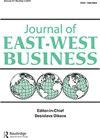别担心,我知道我在做什么:韩国企业和外资企业之间的人才管理实践
IF 0.9
Q4 BUSINESS
引用次数: 2
摘要
摘要人才管理(TM)通常被认为源自西方,但在日常商业实践中采用和实践的人才管理模式与非西方国家的环境存在差距。本文运用制度理论的视角,通过比较韩国外资子公司与韩国本土企业在传统管理实践上的差异,分析了采用传统管理的文化和制度差距。采用混合方法,包括55名来自韩国和非韩国员工的半结构化访谈和155份调查问卷。本文的研究结果揭示了本土企业实行包容性TM和隐性TM的明显区别,而外国公司实行全球标准的独家TM计划。韩国公司在其传统文化中发展非常具体的方法,如集体主义和儒家思想来管理人才,当地员工也评价这种量身定制的TM方法与其他外国跨国公司的独家TM方法一样有效。企业以非常不同的方式经历和应对外部紧急情况,不能假设同构的趋势。本文章由计算机程序翻译,如有差异,请以英文原文为准。
Don't Worry, I Know What I'm Doing: Talent Management Practices between South Korean and Foreign-Owned Firms
Abstract It is frequently argued that Talent Management (TM) has been derived from Western, and there are gaps between spread westernized TM format and contexts of non-western countries when TM is adopted and practiced in a business daily basis. The cultural and institutional gaps to adopt TM are analyzed in this paper through comparing the differences in TM practices between foreign owned subsidiaries and local firms in South Korea using an institutional theory lens. A mixed method approach including 55 semi-structured interviews from South Korean and non-South Korean employees and 155 survey responses is employed. This paper results revealed the clear distinctions that indigenous firms practice inclusive and implicit TM, whereas foreign firms practice global standard exclusive TM program South Korean firms are developing very specific approaches within their traditional cultures such as collectivism and Confucianism to manage talent, and also local employees evaluate this tailored TM approach is effective like other foreign MNCs’ exclusive TM approach. Firms experience and respond to the external exigencies in very different ways and tendencies for isomorphism cannot be assumed.
求助全文
通过发布文献求助,成功后即可免费获取论文全文。
去求助
来源期刊

Journal of East-West Business
BUSINESS-
CiteScore
2.10
自引率
26.70%
发文量
19
期刊介绍:
Journal of East-West Business is a quarterly journal that deals with contemporary and emerging aspects of business studies, strategies, development, and practice as they relate to the Russian Federation, the new republics of the Commonwealth of Independent States, and Eastern/Central Europe-and business relationships with other countries of the world. The Journal of East-West Business is international in scope and treats business issues from comparative, cross-cultural, and cross-national perspectives. The journal features an Editorial Advisory Board that represents the Russian Federation, Eastern/Central European, and Baltic states in this new business arena.
 求助内容:
求助内容: 应助结果提醒方式:
应助结果提醒方式:


